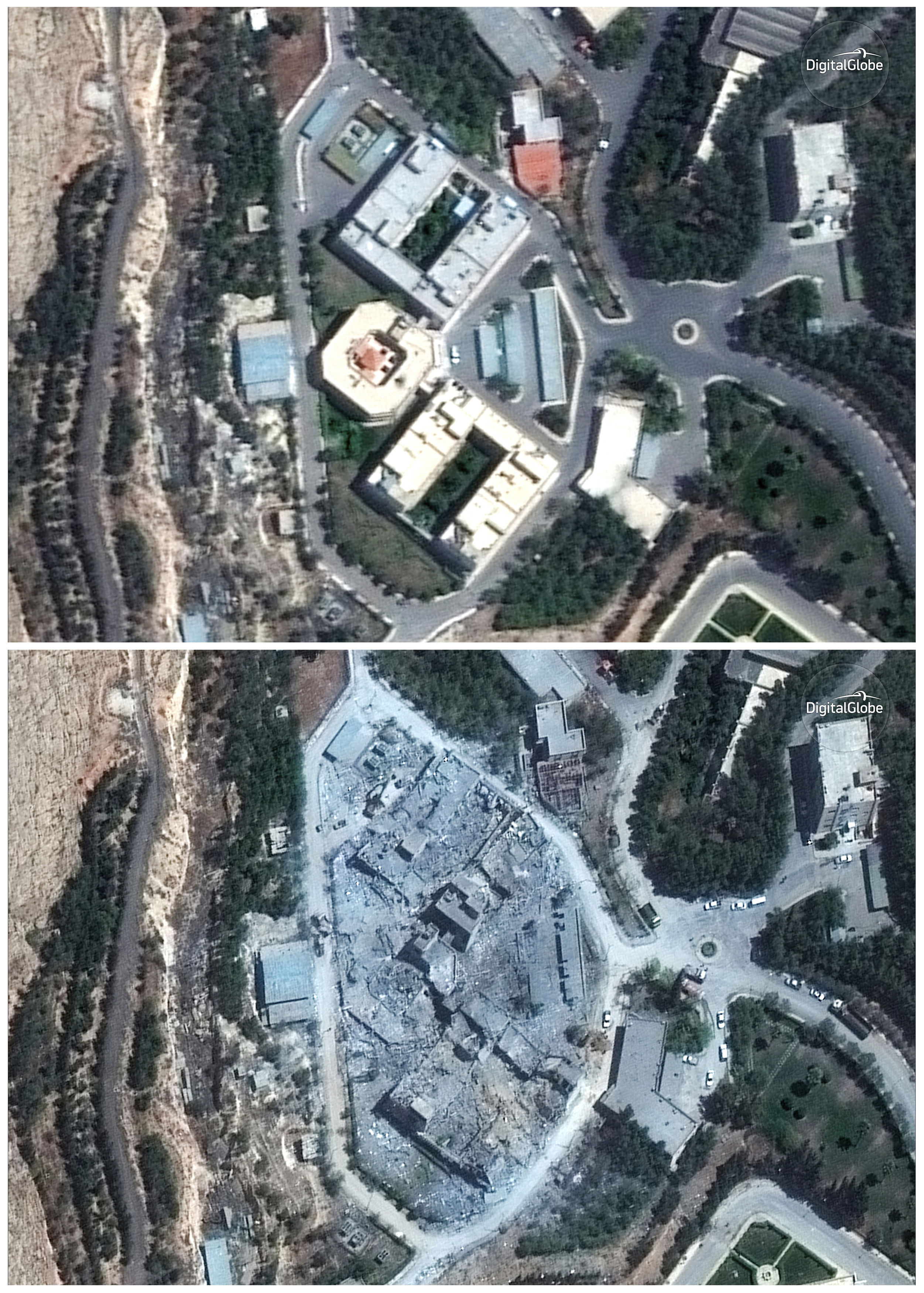Fresh row between UK and Russia over Syrian chemical attack
The two countries have clashed over international inspectors’ access to the site of the Douma atrocity.

Diplomatic tensions between the UK and Russia deepened amid claims that Moscow was blocking investigators from reaching the site of a chemical weapons attack in Syria.
The UK said it was “essential” that the Organisation for the Prohibition of Chemical Weapons (OPCW) was granted “unfettered access” to Douma.
Russia strongly denied interfering with the work of inspectors attempting to reach the site of the atrocity which the UK and Western allies have said was perpetrated by the regime of Moscow’s ally Bashar Assad.
The latest row between the UK and Russia came as Theresa May prepared to face MPs over her decision to launch air strikes against Syria as Labour questioned the legality of the bombing raid.
The UK’s representative at the OPCW, Peter Wilson, said: “It is imperative that the Syrian Arab Republic and the Russian Federation offer the OPCW fact finding mission team their full co-operation and assistance to carry out their difficult task.”
He dismissed as “ludicrous” a Russian claim that the UK had helped stage the attack in Douma, which killed up to 75 people, including a number of children.
He said: “Russia has argued that the attack on Douma was somehow staged, or faked.
“They have even suggested that the UK was behind the attack. That is ludicrous.”
He said Moscow was “spreading conspiracy theories and misinformation” to undermine the integrity of the OPCW’s fact-finding mission to Syria.
Relations between Russia and the UK have been plunged into the deep freeze following the nerve agent attack on Sergei and Yulia Skripal in Salisbury.
The UK’s claims about interference with the OPCW’s work in Syria were dismissed by Moscow.
“Russia confirms its adherence to the provision of security for the mission and does not plan to interfere with its work”, the country’s representative at the OPCW said according to Russian news agency Tass.
Meanwhile, the Prime Minister is expected to face anger in the Commons after launching military action without securing the support of Parliament.
As well as facing MPs’ questions, she will also take the unusual step of calling an urgent debate – although this is expected to fall far short of an explicit vote on the military action demanded by some in the Commons.
Foreign Secretary Boris Johnson insisted the strikes – co-ordinated with action by the United States and France – were “right for the UK and right for the world”.
“But it was the world saying that we have had enough of the use of chemical weapons, the erosion of that taboo that has been in place for 100 years has gone too far under Bashar Assad,” he said.
But shadow attorney general Baroness Chakrabarti questioned the Government’s justification for the airstrikes, telling BBC Radio 4’s Today programme: “You can’t use force under international law just to punish Syria for bad behaviour.
“You have to actually be using urgent, necessary and proportionate force. And you have to do it with the will of the world behind you.”
Labour leader Jeremy Corbyn, writing in The Guardian, said: “The military action at the weekend was legally questionable.
“The Government’s own justification, which relies heavily on the strongly contested doctrine of humanitarian intervention, does not even meet its own tests.
“Without UN authority it was again a matter of the US and British governments arrogating to themselves an authority to act unilaterally which they do not possess.”
Mrs May will ask for the emergency debate to allow more time for discussion in a nod to the fury among MPs at not being consulted.

She will say: “Let me be absolutely clear: we have acted because it is in our national interest to do so.
“It is in our national interest to prevent the further use of chemical weapons in Syria – and to uphold and defend the global consensus that these weapons should not be used.
“For we cannot allow the use of chemical weapons to become normalised – either within Syria, on the streets of the UK or elsewhere.”
Four Royal Air Force Tornado GR4s joined the co-ordinated missile strikes at 2am on Saturday, launching Storm Shadow missiles at a base 15 miles west of Homs.





